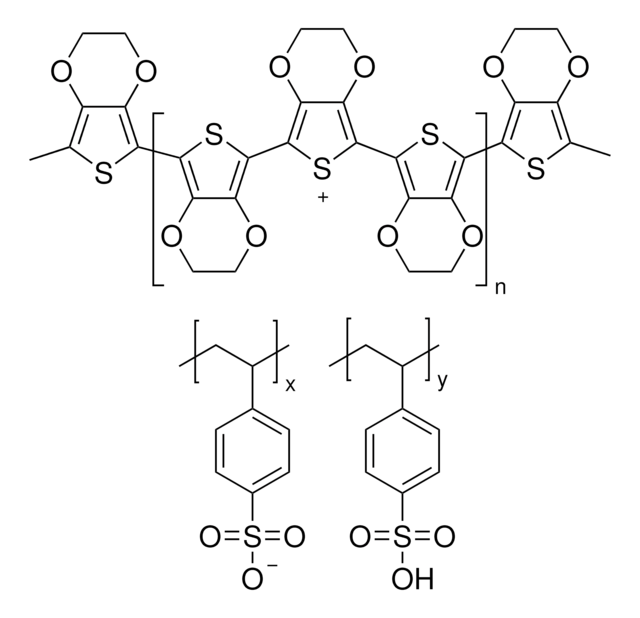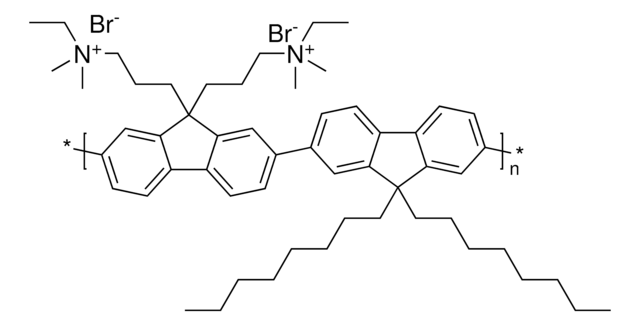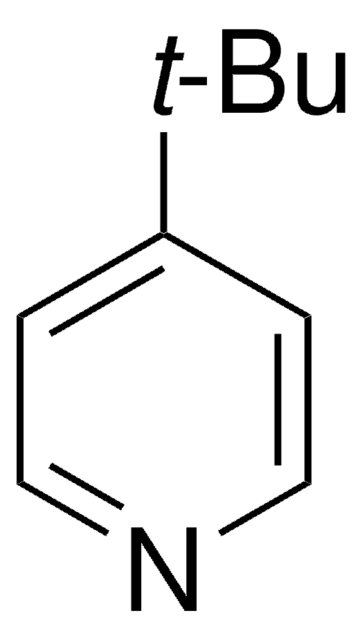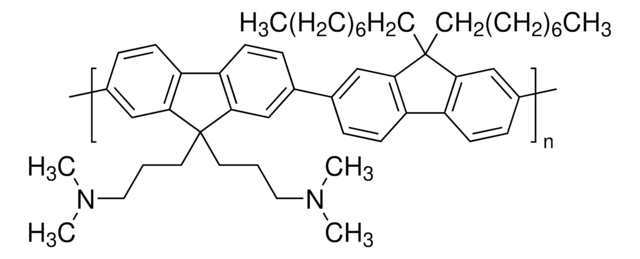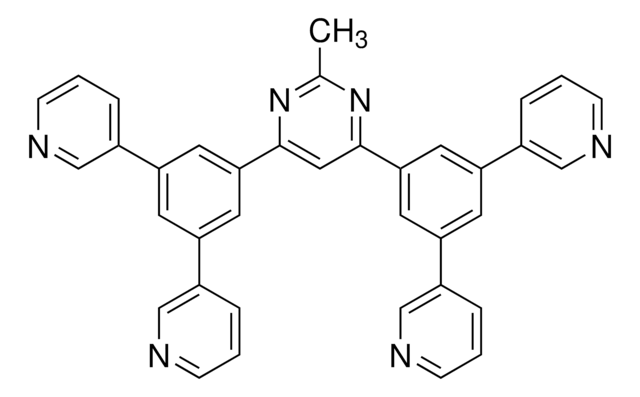907065
Poly-TPD
Mw ≥20,000 g/mol
Synonym(s):
4-Butyl-N,N-diphenylaniline homopolymer, Poly(4-butyl-N,N-diphenylaniline), Poly(4-butyltriphenylamine), Poly[N,N′-bis(4-butylphenyl) -N,N′-bis(phenyl)-benzidine]
About This Item
Recommended Products
description
Solution processable
form
powder
mol wt
Mw ≥20,000 g/mol
greener alternative product characteristics
Design for Energy Efficiency
Learn more about the Principles of Green Chemistry.
sustainability
Greener Alternative Product
mp
>300 °C
orbital energy
HOMO -5.2 eV
LUMO -2.4 eV
greener alternative category
storage temp.
15-25°C
General description
Application
Indoor photovoltaics is one of the best sustainable and reliable energy source for low power consumption electronics such as the rapidly growing Internet of Things.
In another recent study, Perovskite photovoltaic (PPV) cells with a mesoporous PPV (mPPV) structure using typical Spiro-OMeTAD as the hole transport layer (HTL) shows the highest maximum power density (Pmax) of 19.9 μW/cm2 under 200 lux and 115.6 μWcm-2 under 1000 lux (without masking), which is among the best of the indoor PV. When PEDOT:PSS is replaced by Poly-TPD as HTL in the inverted PPV (iPPV) cell, the Pmax under indoor light improves significantly and is comparable to that of the best mesoporous mPPV cell.
Device performance:
iPPV-Poly-TPD
1. under one sun [Pin=100 mW/cm2]
Jsc=21.8 mA/cm2
Voc=1.07 V
FF=73.7%
PCE=17.2%
2. under 1000 lux [200 lux]
Jsc=172.3 mA/cm2
Voc=0.851 V
FF=75.9%
Pmax=111.3 mW/cm
- Organic Light Emitting Diode (OLED): Hole transport layer / Electron blocking layer (HTL/EBL) Materials
- Solution-Processed OLED : Polymer hole transport layer
- Dye-Sensitized Solar Cell (DSSC):Hole transport materials
- Perovskite Solar Cells:Hole transport material
- Flexible Printed Electronics:Hole transport layer / Hole injection layer(HTL/HIL) Polymers
Storage Class
11 - Combustible Solids
wgk_germany
WGK 3
flash_point_f
Not applicable
flash_point_c
Not applicable
Choose from one of the most recent versions:
Already Own This Product?
Find documentation for the products that you have recently purchased in the Document Library.
Customers Also Viewed
Articles
Professor Chen (Nankai University, China) and his team explain the strategies behind their recent record-breaking organic solar cells, reaching a power conversion efficiency of 17.3%.
Our team of scientists has experience in all areas of research including Life Science, Material Science, Chemical Synthesis, Chromatography, Analytical and many others.
Contact Technical Service




